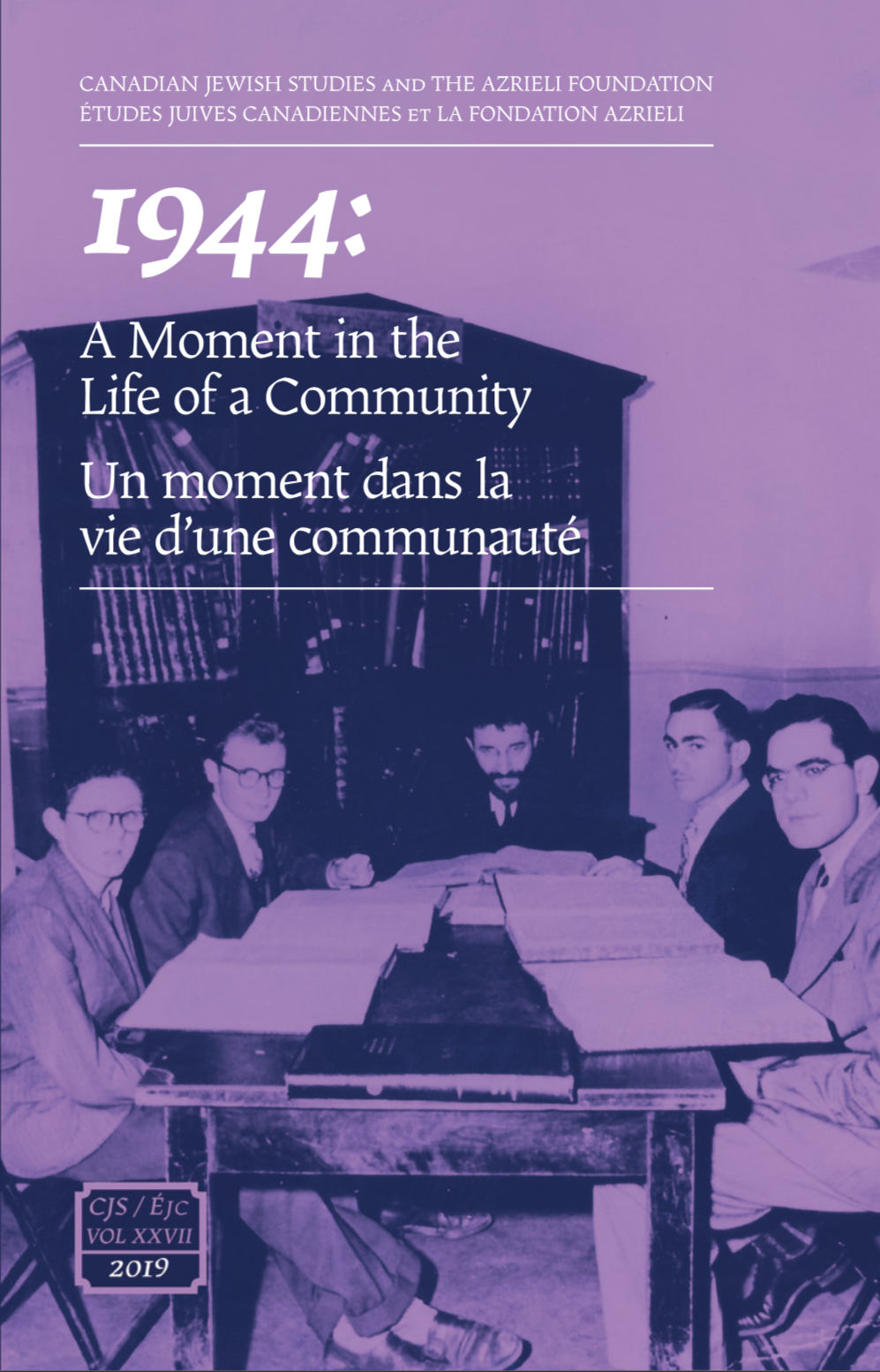1944: A Preview of Much of What Would Follow
DOI:
https://doi.org/10.25071/1916-0925.40106Abstract
This article focuses on the little-known arrival of the first group of Holocaust survivors in Canada in 1944. They arrived from Lisbon and came through the efforts of the Canadian Jewish Congress. Congress Executive Director Saul Hayes spearheaded this refugee project. The author argues that, while few in number, efforts to negotiate the entry of immigrants, and subsequent Jewish communal efforts to absorb immigrant populations in Toronto, and reactions to the immigrants, were to prove paradigmatic predictors of communal management and reaction to much larger Holocaust survivor influxes after the war. While the article focuses on immigrant absorption in Toronto, it also discusses broader issues associated with this movement and the role played by the Yiddish press in reporting refugee arrival.References
Abella and Troper, None Is Too Many, 148-173.
Adara Goldberg, Holocaust Survivors in Canada: Exclusion, Inclusion, Transformation, 1947-1955. (Winnipeg: University of Manitoba Press, 2015), 50-53. DOI: https://doi.org/10.5860/CHOICE.194887
Carmela Patrias and Ruth A. Frager, “This is our Country, these are our Rights: Minorities and the Origins of Ontario’s Human Rights Campaigns,” Canadian Historical Review 82, no. 1 (March 2001): 1-35. DOI: https://doi.org/10.3138/CHR.82.1.1
Eythan Halon, “Canadian Agency Retracts Products of Wine from Israel a#er Backlash,” Jerusalem Post (online edition), 14 July 2017 http://www.jpost.com/Diaspora/Canadian-agency-retracts-Products-of-Israel-wine-ban-a#er-backlash-499687 (14 August 2017).
Franklin Bialystok, Delayed Impact: The Holocaust and the Canadian Jewish Community (Montreal and Kingston: McGill-Queens University Press, 2000), Chapter 2.
Gerald Tulchinsky, Branching Out: The Transformation of the Canadian Jewish Community (Toronto: Stoddart, 1998), chapter 2.
Harry Gutkin, cited in Bialystok, Delayed Impact, p. 79.
Irving Abella and Harold Troper, None Is Too Many: Canada and the Jews of Europe, 1933-1948 (Toronto: Lester and Orpen Dennys, 1982), chapters 1 and 2.
Jack Lipinsky, Imposing Their Will: An Institutional History of Jewish Toronto, 1933-48 (Montreal and Kingston: McGill-Queens University Press, 2012), chapter 4.
Jean Miriam Gerber, “Immigration and Integration in Postwar Canada: A Case Study of Holocaust Survivors in Canada, 1947-1970,” M.A. Thesis, University of British Columbia, 1989, 68. https://open.library.ubc.ca/media/stream/pdf/831/1.0097780/1 (2 August 2017).
Lipinsky, Imposing Their Will, 222-224.
Rebecca Margolis, “Review of the Yiddish Media: Responses of the Immigrant Community in Canada,” in Ruth Klein, ed., Nazi Germany, Canadian Responses: Confronting Anti-Semitism in the Shadow of War (Montreal and Kingston: McGill-Queens University Press, 2012), 125-127.
Ron Csillag, “Inspection Agency reverses directive on West Bank wine,” Canadian Jewish News, 20 July 2017, 12.
Downloads
Published
How to Cite
Issue
Section
License
Canadian Jewish Studies/ Études juives canadiennes is a journal dedicated to the open exchange of information; therefore the author agrees that the work published in the journal be made available to the public under a Creative Commons Attribution-Noncommercial-No Derivative Works 4.0 Unported License. The publisher (Association for Canadian Jewish Studies / Association d'études juives canadiennes) recognizes the author's intellectual property rights; authors retain copyright over their work. The author grants the publisher first serial publication rights and the non-exclusive right to mount, preserve, and distribute the intellectual property. The journal is digitized and published on the open access website http://pi.library.yorku.ca/ojs/index.php/cjs/index.







